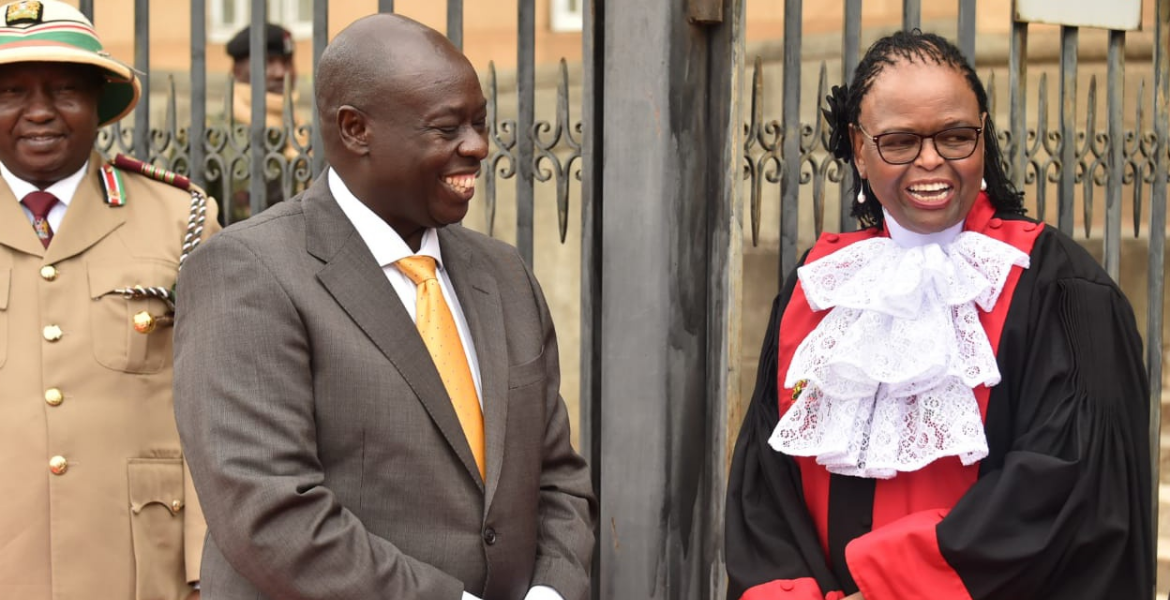The High Court on Friday referred the cases challenging the impeachment of Deputy President Rigathi Gachagua to Chief Justice Martha Koome to appoint three judges to hear and determine the matter.
In his ruling, Justice Lawrence Mugambi noted that the cases raised serious constitutional questions that required the intervention of the Chief Justice.
“In my view, despite stiff opposition by the respondents, it is my opinion that these cases raised weighty constitutional questions that fall under Article 163 hence I am persuaded to refer them to the Chief Justice,” Mugambi stated.
“The courts do not exist to serve the intellectual stimulation of the elites but to serve the public in matters of great concern and this one is one of those rare occasions that the court should arise to the occasion to serve the public with all the resources that it can summon.”
The ruling follows remarks from Deputy President Gachagua’s legal team, led by Senior Counsel Paul Muite, who argued that his impeachment raised several constitutional questions, as it marks the first time the country is dealing with a deputy president’s impeachment under the current constitution.
Muite urged the court to consider escalating the case to the Supreme Court, requesting the formation of a three-judge bench to hear and determine the matter.
He emphasized that the impeachment process for a deputy president differs significantly from that of a president or governor, pointing out that Gachagua’s impeachment motion lacked sufficient public participation. The legal team also contended that Gachagua should have been given the opportunity to address the eleven charges against him before the public participation phase, ensuring Kenyans could make well-informed decisions.
“It is not about the number in the National Assembly. There has to be proof of gross violation of the Constitution. The right to a fair trial cannot be limited. There are weighty issues in a presidential system,” Muite argued.
With the case now before the Senate for consideration, it will be heard in a full plenary session, where lawmakers will examine all 11 charges against Deputy President Gachagua before he is given the opportunity to respond.
Gachagua will have four hours to present his defense, aided by his legal team. During the trial, both the National Assembly and Gachagua’s defense will call witnesses, who will be permitted to testify before the Senate.
ALSO READ:
Government to Link Pay Bill Services with KRA System by Christmas, Says Moses Kuria
Morara Kebaso Announces Break Following Recent Attacks and Arrests

